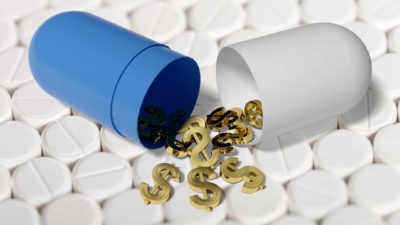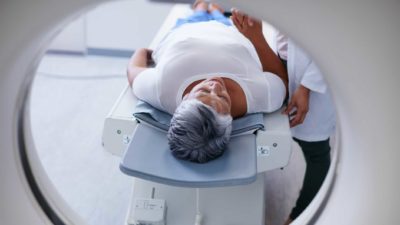ASX listed healthcare shares make up a popular defensive investment sector. Most people will devote significant resources to their health and the health of their loved ones over their lifetime. Trends including the aging population, obesity epidemic, and increasing numbers of people living with chronic disease point to increasing demand for services provided by the healthcare industry.
It is easy to forget that the companies that make up the healthcare industry are many and varied, with different revenue and profit drivers. Pharmaceutical companies, hospitals, insurers, and device makers all have different asset types and methods of generating income.
Pharmaceutical
Pharmaceutical companies manufacture and distribute drugs. Significant sums must be spent on research and development to discover and commercialize new compounds. The results of clinical trials are crucial to the success of new drugs and can impact the price of shares significantly.
When assessing the potential of a new drug, important considerations include the condition(s) the drug treats and the number of people affected, the availability of any substitutes, and the process for taking the drug to market, including completing clinical trials and gaining regulatory approvals. It can take years to take a new drug or formulation from the lab to the chemist counter.
Some of the most valuable assets of pharmaceutical companies are intellectual property. Patents give pharmaceutical companies the right to manufacture and market particular formulations exclusively for a certain number of years. Once the patent expires the drug becomes generic and can be manufactured and marketed by other companies. This is why it is important for pharmaceutical companies to have a pipeline of new drugs to take to the market to ensure continued revenue streams.
Mayne Pharma Group Ltd (ASX: MYX) distributes a range of branded and generic drugs for the treatment of everything from acne to tension headaches. The Mayne Pharma share price has fallen from favour of late, losing half its value from a year ago to sit around 55 cents currently.
FY19 revenue was $525 million, down from 1% from FY18 in part due to the competitive pressures of the US generic market. The non-generic business segment saw sales double contributing to growth of 13% in reported gross profit, which was up to $290 million in FY19.
A $273 million impairment relating largely to intangible generic assets was realised, however, which lead to a net loss after tax of $281 million. On the plus side, the impairment was in line with those undertaken by many US peers and should improve earnings per share going forward.
Hospitals
Hospitals have significant fixed costs associated with the complex infrastructure and technology they require to run. Revenue comes from patients, health insurers and the government. Hospitals will naturally perform better when they are fully occupied as fixed costs are spread amongst a greater number of patients.
The type of cases a hospital treats are also important – some types of treatment, such as surgery, have higher margins than others, such as treating a sprained ankle. Often the more complex the procedure, the higher the associated margin.
The size of a hospital can also make a difference – larger hospitals can share resources and may attract more specialists, leading to a more favorable case mix. Larger hospitals are also likely to be in a more powerful position when negotiating contracts with suppliers, leading to more favorable outcomes.
Ramsay Health Care Limited (ASX: RHC) is one of the largest hospital operators in Australia. Operating 480 facilities across 11 countries, Ramsay generated revenues of more than $11.4 billion in FY19, up from $9.1 billion in FY18. Core earnings per share were up 5.8% in FY19 to 91.5 cents. A full-year dividend of 151.5 cents per share was paid giving Ramsay a dividend yield of 2.20%.
Ramsay completed the acquisition of Capital AB, a leading European healthcare provider with clinics across Sweden, France, and Norway, in FY19. The acquisition expands Ramsay's European footprint and provides a gateway to further bolt on acquisitions in the Nordics. Ramsay plans to continue its expansion through acquisitions as well as via investments in existing hospital facilities.
Health insurers
Health insurers work on a different business model again. Health insurers charge policyholders premiums, the quantum of which is calculated based on the likelihood and costs of the various medical maladies which the policyholder may suffer (and the insurer would be required to cover). Premiums are then invested in income-producing assets.
Like all forms of insurance, health insurance works on the principle of risk pooling – whereby the financial risks of adverse health events are spread across a large number of policyholders. Insurers often risk share with the policy holder by requiring the policy holder to pay an excess when they go to hospital, or make co-payments contributing to the cost of the services they have claimed.
Ultimately, for a health insurer to be profitable the value of the premiums it collects and the income it earns on them must be greater than the cost of claims it pays plus its administrative and marketing expenses.
Medibank Private Ltd (ASX: MPL) was listed on the ASX in 2014 following its privatization by the Australian Government. Debuting at $2.22, shares are trading around $3.42 five years later. The health insurer paid an ordinary dividend of 13.1 cents per share and a special dividend of 2.5 cents per share in FY19, both fully franked.
Net profit from continuing operations was $437 million in FY19, up from $424 million in FY18, while health insurance operating profit was $542 million, up from $535 million the prior year. Medibank added more than 15,000 new customers over the FY19 year, increasing its market share for the first time in 10 years.
Medical device makers
Medical device manufacturers develop instruments and machinery used to diagnose and treat medical conditions. Product such as pacemakers, artificial joints, and x-ray machines are all classified as medical devices. Extensive R&D is often involved and the costs of obtaining regulatory approvals can be high. It is estimated the medical device industry will be worth $US800 billion per year by 2030.
Like any other manufacturer, medical device manufacturers make money by producing and selling their products. Medical devices are generally sold to healthcare providers such as hospitals (B2B sales) who use the devices when treating patients. Medical devices can also be sold directly to consumers (B2C sales) which can open new revenue streams and even potentially lower healthcare costs.
Polynovo Ltd (ASX: PNV) is a medical device manufacturer that makes biodegradable polymers. Polynovo has created an implantable wound dressing that can be used for burns and surgical wounds and is developing products for use in hernia repair and orthopaedics.
The Polynovo share price has increased by nearly 300% over the course of 2019 from 60 cents in January to around $2.32 currently. Sales of Polynovo's NovoSorb BTM product increased 435% over FY19. Polynovo reported revenue for FY19 of $13.68 million, up 128% from FY18. Cash on hand as at 30 Jun was $13.9 million.
Foolish Takeaway
ASX listed healthcare shares are many and varied. While they may be broadly impacted by similar trends the specific impact will vary according to the segment of the market each healthcare provider operates in.








